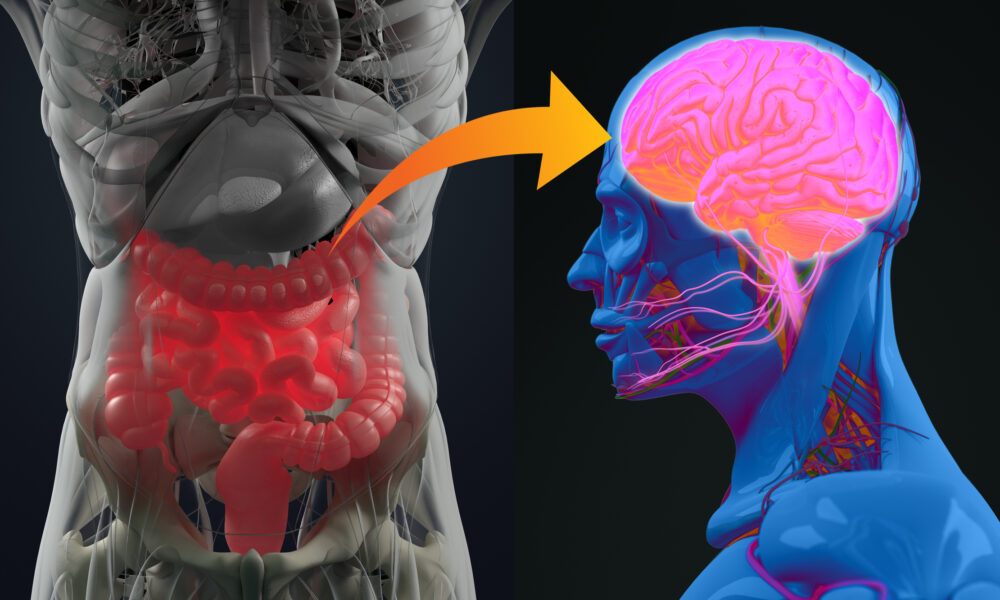- Home
- About
- Portfolio
Crush the Match – Medical School and Residency Platform
Food¢ense – Curbing Childhood Obesity and Food Waste
HealthStack – Shared and Jailed HIPAA Hosting $50
Marta Care – Let Us Help When You Can’t
MD Idea Lab – We Build Prototypes for Doctors
Nervcell – The Healthcare Web Browser
Patient Keto – Personalized Keto Medicine and Telehealth
SwipeChart – Rapid EMR Interface
Treatment Scores – Quantifying the Science of Medicine
Treatments – Diagnosed. Now What?
VIDRIO – Google Glass and EMR Interface
- Blog
- Contact
- Home
- Warp Core Health
- Blog
- Biochemistry
- Probiotics as Adjunctive Treatment for Depression: A Promising Frontier
Probiotics as Adjunctive Treatment for Depression: A Promising Frontier
Introduction
Depression is a prevalent and debilitating mental health disorder that affects millions of people worldwide. While current treatment options such as antidepressant medication and psychotherapy can be effective, a significant proportion of individuals with depression do not experience a satisfactory response. This has led researchers to explore novel approaches to treatment, and one such area of investigation is the use of probiotics. Probiotics, which are live microorganisms that confer health benefits when consumed, have shown promise in influencing the microbiota-gut-brain axis and improving depressive symptoms. A recent pilot randomized clinical trial published in JAMA Psychiatry by Nikolova et al. (2023) investigated the acceptability, tolerability, and potential efficacy of probiotics as an adjunctive treatment for depression. The study’s findings shed light on the potential benefits of probiotics and provide a basis for further investigation in larger efficacy trials.
Study Overview
The study conducted by Nikolova et al. included 49 participants with major depressive disorder (MDD) who had an incomplete response to antidepressant medication. The participants were randomly assigned to receive either a multistrain probiotic or a placebo in addition to their ongoing antidepressant treatment. The trial lasted for 8 weeks, during which the researchers assessed various outcomes, including depressive and anxiety symptoms, treatment adherence, tolerability, and adverse reactions.
Key Findings
The results of the study revealed several important findings. Firstly, the probiotic group demonstrated greater improvements in depressive and anxiety symptoms compared to the placebo group. This was evident from the reduction in scores on rating scales such as the Hamilton Depression Rating Scale (HAMD-17), Inventory of Depressive Symptomatology (IDS), Hamilton Anxiety Rating Scale (HAMA), and General Anxiety Disorder (GAD-7). Secondly, the probiotic intervention was well-tolerated, with a high adherence rate and no serious adverse reactions reported. The dropout rate was low, further highlighting the acceptability of probiotics as a treatment option. Finally, the effect sizes observed in the probiotic group were moderate, suggesting a potential therapeutic benefit.
Implications and Future Directions
The findings of this pilot trial provide a solid foundation for further investigation of probiotics as adjunctive treatment for individuals with major depressive disorder. The acceptability, tolerability, and estimated effect sizes on key clinical outcomes indicate that probiotics may offer a promising avenue for improving depressive symptoms. However, it is important to note that this study was a pilot trial with a relatively small sample size, and thus, larger efficacy trials are needed to confirm and build upon these preliminary findings.
The potential mechanisms through which probiotics exert their effects on depressive symptoms are still being explored. The microbiota-gut-brain axis is thought to play a crucial role in influencing mood and behavior, and probiotics may modulate this axis by promoting a healthy gut microbiome. Further research is required to elucidate the specific strains and dosages of probiotics that are most effective in treating depression, as well as to identify the patient subgroups that may benefit the most from this intervention.
Conclusion
Depression is a complex and multifaceted condition that demands innovative treatment approaches. The study by Nikolova et al. contributes to the growing body of evidence supporting the potential use of probiotics as adjunctive treatment for depression. The results demonstrate the acceptability, tolerability, and estimated effect sizes of probiotics in improving depressive and anxiety symptoms. These findings underscore the need for larger, well-designed efficacy trials to confirm the therapeutic potential of probiotics and inform clinical practice. If future studies continue to show promising results, probiotics could represent a safe, accessible, and scalable treatment option for individuals with depression, complementing existing interventions and improving patient outcomes.
Reference Article:
Title: Acceptability, Tolerability, and Estimates of Putative Treatment Effects of Probiotics as Adjunctive Treatment in Patients With Depression: A Randomized Clinical Trial Journal: JAMA Psychiatry Date: June 14, 2023
Author: Stephen Fitzmeyer, M.D.
Physician Informaticist
Founder of Patient Keto
Founder of Warp Core Health
Founder of Jax Code Academy, jaxcode.com
Connect with Dr. Stephen Fitzmeyer:
Twitter: @PatientKeto
LinkedIn: linkedin.com/in/sfitzmeyer/
Recent Posts
- Protected: Warp Core Health: Building a Custom AI Model for Transforming Healthcare
- The Intersection of Healthcare, AI, Clinical Informatics, and Machine Learning
- Accessing Siloed EMR Systems with FHIR: Connecting to Multiple EMRs
- How AI and Informatics Are Transforming Healthcare
- How AI Can Transform Healthcare Applications
Categories
- ApoB
- Artificial Intelligence
- Autophagy
- Biochemistry
- Biomedical Informatics
- Biostatistics
- Blood Glucose
- CAC
- Carbs
- CCD
- CDA
- Clinical Informatics
- Coding Bootcamp
- Coronary Artery Disease
- COVID-19
- Cybersecurity
- Data Science
- Diabetes
- Diet
- EHS
- EMR
- Epidemiology
- Evidence Based Medicine
- Fats
- FHIR
- Fiber
- Generative AI
- Global Health
- Health Administration
- Health Informatics
- Health IT
- HIPAA
- HL7
- Hyperglycemia
- Hypoglycemia
- ICD 10
- Intermittent Fasting
- Ketogenic Diet
- Machine Learning
- Macronutrients
- MCT Oil
- Metabolic Health
- Metabolic Syndrome
- Minerals
- Mitochondria
- MySQL
- Neurology
- Nutritional Ketosis
- Nutritional Neurology
- Nutritional Psychiatry
- PHP
- PHR
- Programming
- Prompt Engineering
- Proteins
- Prototypes
- Public Health
- Python
- Recipes
- Sleep Health
- Stroke
- Uric Acid
- Vegan and Vegetarians
- Vitamin D
- Vitamin K2
- Vitamins

